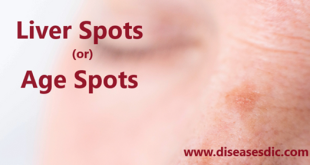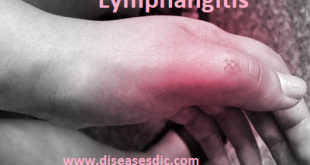Definition
Lynch syndrome is an inherited genetic condition that significantly raises a person’s risk of developing cancer. The cancer is most frequently in the colon, but it could also be in the stomach, small intestine, liver, gallbladder ducts, urinary tract, brain, skin, and prostate. Women have higher risk of endometrial (lining of the uterus) or ovarian cancer.
A person with Lynch syndrome is at greater risk of developing cancer at a younger age, usually before they are 45 years old. If one parent carries the gene mutation related to Lynch syndrome, there’s a 50 percent chance the mutation will be passed on to each child that person has.
Not everyone who carries these mutations develops cancer. For people with a family history of cancer, knowing if you or a person in your family has Lynch syndrome is important to the affected individuals take the steps to prevent illness.
History
LS was first described in 1913 by the American pathologist Aldred Scott Warthin.3 He published the pedigree of ‘Family G’, which included numerous cases of colorectal, uterine and gastric cancers. He became interested in the family’s history after a seamstress in the town of Ann Arbor correctly predicted her early death from cancer, even though she was healthy at the time, based on the large number of her ancestors who had died of intestinal tract and gynaecological cancers, generation after generation at a young age. Warthin traced her genealogy and searched for death reports, publishing his findings almost 20 years later. Subsequently, in 1966, Henry T. Lynch et al. reported Families ‘M’ & ‘N’ with a very similar collection of tumours to Warthin’s ‘Family G’.4 Further analyses of these three families, and other families with similar presentations, led to the recognition of Lynch Syndrome (LS).
Types of Lynch syndrome
Types of lynch syndrome include:
- Lynch syndrome I
- Lynch syndrome II
- Muir-Torre syndrome
What is Lynch I syndrome and Lynch II syndrome?
Lynch I syndrome is a term sometimes used to refer to families who have HNPCC with colorectal cancer only, while Lynch II refers to families who have other cancers, such as endometrial or ovarian, in addition to colorectal cancer.
What is Muir-Torre syndrome?
Muir-Torre syndrome is a rare variant of HNPCC in which the features of HNPCC are present along with sweat gland tumors, called sebaceous adenomas, and specific skin tumors, called keratoacanthomas. Like HNPCC, individuals with Muir-Torre syndrome are found to have mutations in either MSH2 or MLH1.
Risk factors
People with LS inherit one of the syndrome’s gene mutations from their mother or their father. Still, “most people have no idea that they have it,”
Since Lynch syndrome raises the risk for certain cancers, providers often decide whether someone should get Lynch syndrome testing based on individual and family cancer history. These include criteria like:
- Having colorectal or endometrial cancer before age 50
- Being diagnosed with colorectal cancer and another Lynch syndrome-associated cancer
- Having a history of colorectal cancer or other Lynch syndrome-associated cancers occurring before age 50 in one or more first-degree relatives
- Having a history of colorectal cancer or other Lynch syndrome-associated cancers occurring in two or more first- or second-degree relatives
People who are diagnosed with colorectal or other cancers associated with Lynch syndrome should also be tested if their tumors show certain abnormalities.
Causes of Lynch syndrome
LS is caused by a mutation (genetic change) in one of five specific genes that are responsible for fixing errors in DNA. To further explain, DNA are the codes that carry genetic information. Every time cells divide, the DNA duplicates.
Sometimes errors occur during DNA duplication that damages cells and affects the way cells grow. A buildup of these damaged cells may lead to cancer.
Usually, a gene called the DNA mismatch repair (MMR) gene finds and fixes the errors before they damage the cell.
People with Lynch syndrome have a mutation in the MMR gene, which means the errors are less likely to be found and fixed, which increases the risk of developing certain cancers.
Lynch syndrome symptoms
A set of criteria used to help doctors decide who should be tested for Lynch syndrome is called the revised Bethesda guidelines, which are listed below:
- Developing colorectal or endometrial cancer younger than age 50
- Developing colorectal cancer, endometrial cancer, or other type of cancer* with mismatch repair deficiency (MMR-D) or high-level microsatellite instability (MSI-H) found on testing of the tumor specimen
- Developing colorectal cancer and other types of cancer* linked with LS separately or at the same time
- Colorectal cancer in 1 or more first-degree relatives who also has or has had another Lynch syndrome-related cancer*, with 1 of these cancers developing before age 50. The phrase “first-degree relatives” include parents, siblings, and children.
- Colorectal cancer in 2 or more first- or second-degree relatives with another Lynch syndrome-related cancer*. “Second-degree relatives” include aunts, uncles, grandparents, grandchildren, nephews, and nieces.
*category includes colorectal cancer, endometrial cancer, ovarian cancer, stomach cancer, small bowel cancer, ureter or renal pelvis cancer, bladder cancer, bile duct cancer, pancreatic cancer, or sebaceous adenomas of the skin.
Lynch syndrome complications
Developing colorectal cancer is the main complication of LS.
However, people can also develop noncancerous colon polyps. If a person does not receive treatment, colon polyps can cause the following symptoms:
- Stomach pain
- Constipation or diarrhea
- Changes in the color or texture of stools
- Anemia
- Fatigue
Diagnosis and test
Early diagnosis is crucial for early detection and treatment of colon and rectal cancers. Your schedule for regular screenings depends on your family and medical history.
Individuals at risk for Lynch syndrome usually have a family history of two successive generations of colon or rectal cancer. Or they have at least one generation with colon or rectal cancer and one generation with polyps.
Men and women at risk need a colon examination. Women should also have yearly endometrial and ovarian screenings. Your doctor will work with you to determine your specific examination guidelines.
Diagnostic procedures for Lynch syndrome include the following:
Genetic Testing
Mutations, or changes, in one of five different genes are responsible for most cases of Lynch syndrome. If you have a family history of LS, you can have a genetic test to determine whether you are at risk for developing cancer.
A genetic test is performed by obtaining a small blood sample. If your test confirms that you have the gene mutation, you should schedule annual colonoscopies and get regular screenings. If you do not have the mutation, you can avoid unnecessary examinations.
One or more of the criteria below is met, consider seeking genetic counseling and testing:
- Family member with a confirmed diagnosis of Lynch syndrome
- Colorectal and endometrial cancer diagnosis at any age, particularly after pathology testing shows alterations related to LS
- Multiple primary cancer diagnoses
- Several family members have had cancers related to Lynch syndrome
Microsatellite Instability Testing and Immunohistochemistry Testing
Microsatellite instability testing and immunohistochemistry testing are used as a screening test to see how likely it is that your cancer was caused by one of the Lynch syndrome genes. If your test was positive, then the cancer may be due to a gene mutation, and you can pursue genetic blood testing.
Colonoscopy
A colonoscopy is the preferred method for diagnosing Lynch syndrome. It is the best way to detect polyps or cancer and allows your doctor to see the entire bowel. Your colon must be clear of stool to allow good visibility. Preparations may include a liquid diet, an enema and laxatives. Patients are sedated before the procedure.
During a colonoscopy:
- Your doctor inserts the colonoscope through the rectum and into the anus and large intestine to check for cancer or polyps.
- Biopsy forceps may be inserted through the scope to remove a small sample of tissue for further analysis.
- If there is a polyp, it can be removed through the colonoscope.
- You may experience some cramping or discomfort.
Treatment and medications
Lynch syndrome patients with colon cancer are treated similarly to colon cancer patients without Lynch syndrome. The specific treatment will depend on the stage of diagnosis and the patient’s overall health.
Surgery: Surgery may be recommended to remove localized tumors. Due to the high risk of developing more tumors in the future, your doctor may recommend removing a large part of your colon or the whole colon.
Chemotherapy: 5FU-based therapies (FOLFOX, CAPOX) is the standard of care with the addition of oxaliplatin in metastatic cancer. The addition of targeted therapies depends on the sidedness of the tumor with anti-EGFR therapy for left-sided tumor and wildtype KRAS, and anti-VEGF therapy (bevacizumab) for right-sided tumors or those with KRAS mutations.
Immunotherapy: Because the majority of Lynch tumors are MSI-H, patients benefit from treatment with immune checkpoint inhibitors. Treatment with checkpoint inhibitors is currently a second-line of therapy, but there are ongoing clinical trials for immunotherapy as first-line therapy.
Prevention & Screening
Patients with Lynch syndrome who do not have cancer should consider getting regular screening tests to reduce their risk of cancer spreading undetected. The following are general screening recommendations:
Colorectal Cancer: Colonoscopy every one to two years starting at age 20, then every year after age 40. If cancer is found, a colectomy (removal of the entire colon) is recommended.
Endometrial Cancer: Transvaginal ultrasound and a CA-125 blood test every year beginning at age 30. Some women may also want to consider a total hysterectomy (removal of the entire uterus) to eliminate their risk of endometrial cancer.
Stomach and Small Bowel Cancer: Upper endoscopy once every three years starting at age 30.
It is recommended that patients work with their doctor to create a screening plan that is best for them based on their family history of cancer and the specific types of gene mutations they have.
 Diseases Treatments Dictionary This is complete solution to read all diseases treatments Which covers Prevention, Causes, Symptoms, Medical Terms, Drugs, Prescription, Natural Remedies with cures and Treatments. Most of the common diseases were listed in names, split with categories.
Diseases Treatments Dictionary This is complete solution to read all diseases treatments Which covers Prevention, Causes, Symptoms, Medical Terms, Drugs, Prescription, Natural Remedies with cures and Treatments. Most of the common diseases were listed in names, split with categories.







